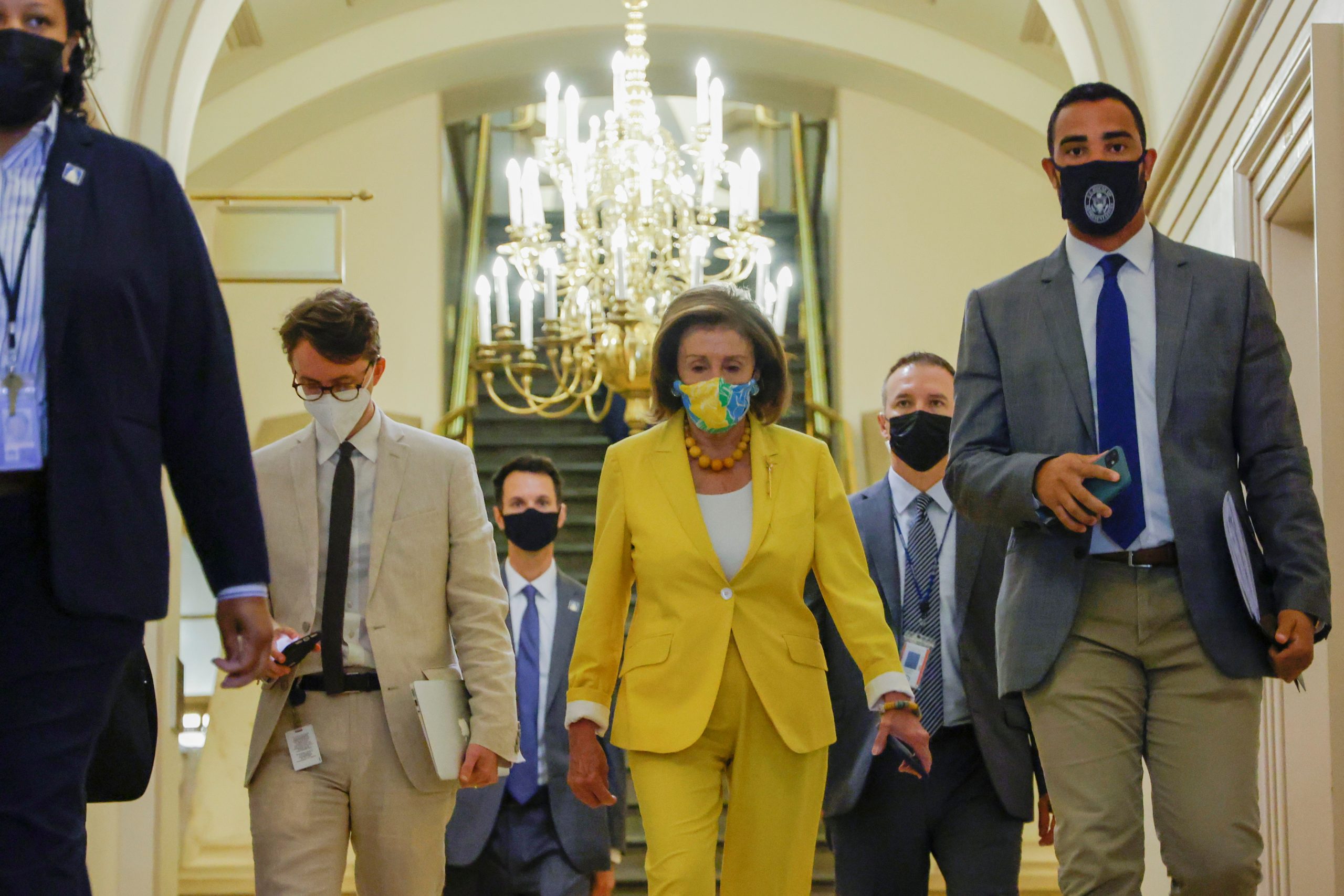
Samuel Case, FISM News
[elfsight_social_share_buttons id=”1″]
The House of Representatives passed a framework of the much debated $3.5 trillion-dollar social spending deal, which Democrats hope to fill with the progressive priorities of the Biden administration.
The blueprint passed along partisan line 220-212 on Tuesday, after House Speaker Nancy Pelosi managed to flip 10 more moderate democrats who wanted to pass the sister $1 trillion bi-partisan infrastructure bill first, which will now be taken up on September 27.
“Passing this rule paves the way for the building back better plan which will forge legislative progress unseen in 50 years, that will stand for generations alongside the new deal and the great society,” Pelosi said before the vote. Meanwhile, House Minority Kevin McCarthy called the vote “an embarrassing day to America.” On Twitter McCarthy also attacked Democratic leadership for “twisting arms” to “jam through” the blueprint, “but they aren’t twisting anyone’s arm to make sure Americans get home safely from Afghanistan.”
Democratic leadership spent their entire day twisting arms to get people to jam through a $3.5 trillion dollar socialist wishlist.
But they aren't twisting anyone's arm to make sure Americans get home safely from Afghanistan. pic.twitter.com/jx4DnHv3lW
— Kevin McCarthy (@SpeakerMcCarthy) August 24, 2021
The massive spending bill has yet to be written, but is expected to address several of the Biden Administration’s top priorities, including immigration reform, climate change and the expansion of social programs. The partisan spending bill is intended to accompany the smaller infrastructure bill, and is therefore being dubbed by Democrats as a “human infrastructure” package.
Unlike the infrastructure bill, which received support from both parties in the Senate, passing 69-30, this $3.5 trillion bill is expected to face an uphill battle in the Senate, where like in the House it will enjoy zero support from Republicans. Once fully fleshed out, Democrats hope to push through the massive plan by implementing the filibuster-proof process of budget reconciliation, requiring only a simple majority to pass.
Senators Joe Manchin (D-WV) and Kyrsten Sinema (D-AZ) have both voiced opposition to the proposal, and with a razor thin majority in the Senate, either of the two could cause the bill to fail. Both senators have expressed deep concerns over the immense cost of the bill.
“I firmly believe that continuing to spend at irresponsible levels puts at risk our nation’s ability to respond to the unforeseen crises our country could face,” Manchin said in a statement earlier this month. Likewise the action of House Democrats isn’t swaying Sinema, with a spokesperson telling Politico “she will not support a budget reconciliation bill that costs $3.5 trillion.”
Earlier this month Senator John Thune (R-SD) warned that if the spending plan passed it would increase the national debt to $45 trillion in the next 10 years.
